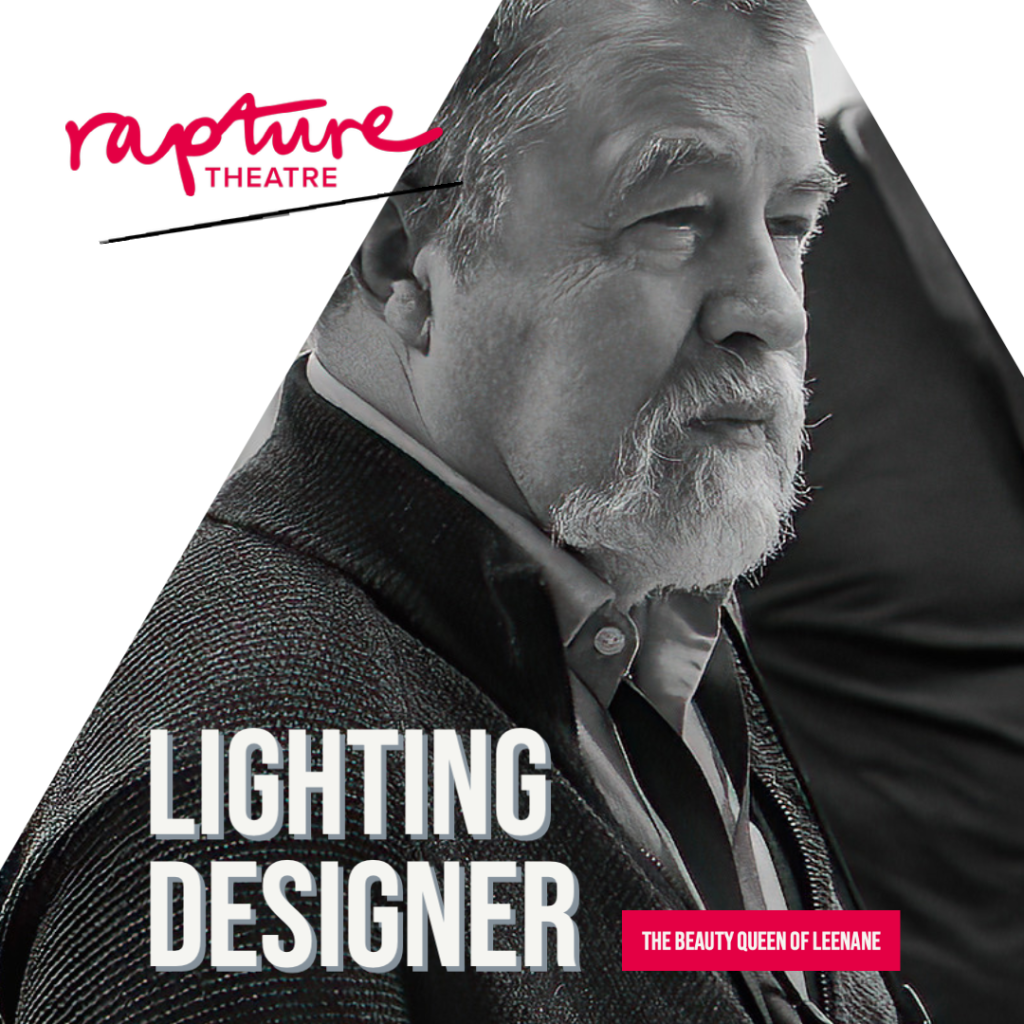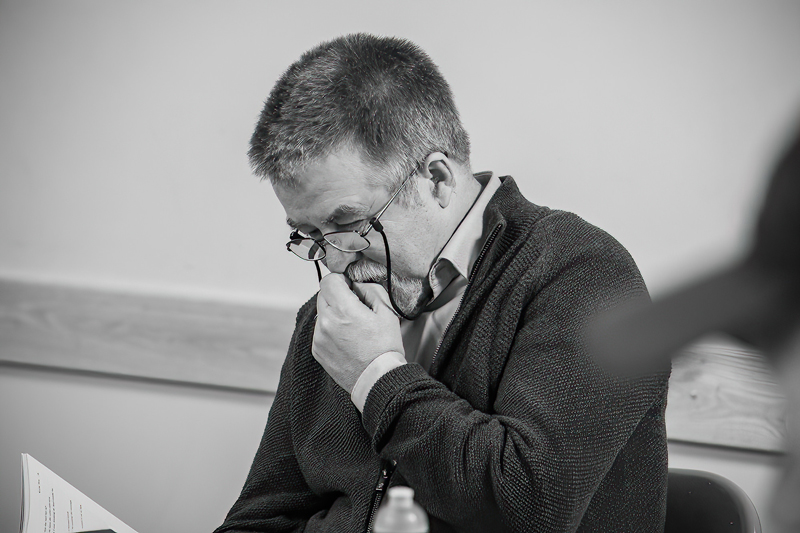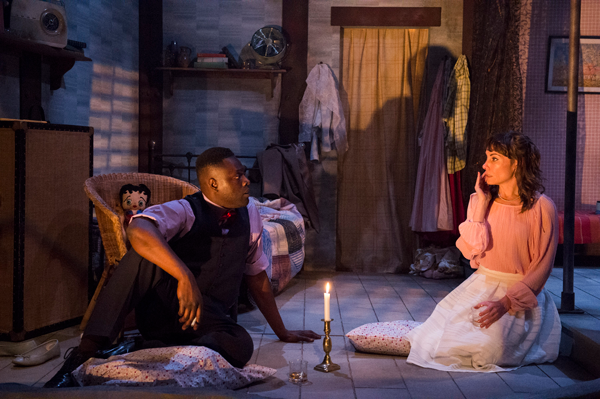Interview by Geraldine Emans

In this interview, I had the pleasure of speaking to David Cunningham who is Rapture Theatre’s Lighting Designer for The Beauty Queen of Leenane..
What’s a typical day in your job like? What do you do on a daily basis?
During the production week, my role is to create “lighting states” that correspond to the action seen on the stage. These states are produced in response to the both the stage directions and the atmosphere created in the play.
How did you become interested in the job you do now? What drew you to the field?
While I was a student at the University of Stirling in 1970, I joined the University’s Dramatics Society and my interest in theatre developed from there. Within a year, the MacRobert Theatre (Arts Centre) opened on the University of Stirling Campus which also provided me with the opportunity for casual work in lighting design. The MacRobert Theatre (Arts Centre) at that time was being used for Scottish Opera rehearsals – and opera was my first love. I have never forgotten the amazing experience of providing the lighting for “The Marriage of Figaro” at the MacRobert, and it was a defining moment for my career choice or rather “Love at first Light!”

Which qualifications did you need to get your job, or would someone need to get a job like yours?
At the time I entered this field, no formal qualifications were required to do my job. I was unbelievably lucky. For anyone looking to become a lighting designer within the theatre industry today, there are two main options. The first option would be a degree in Production at the Royal Conservatoire of Scotland. The second would be to undertake a college course in Technical Theatre, as many students who study technical theatre go on to become lighting designers. Several colleges in Scotland offer such courses although these can be fiercely competitive. A third possible route into this area might be to train as a computer programmer as often freelance programmers are very valuable in this industry.
What skills have you found to be vital to your job? Which skills help you do your job most effectively?
Creativity is vital to my role which is like being a “painter with light.” I also use interpretation skills when I first look at the script and model of the set. The script and the set are my key ‘ingredients’ to help me design something original for each production. From those initial moments the creative process begins, and I then utilise planning skills to consider different possibilities. Experimentation is a large part of my role so being able to analyse and evaluate the impact of different effects are good skills to have too. It’s also very useful to have flexible thinking so that you can adapt your ideas to achieve the perfect effect required. Ultimately good timing skills are crucial for providing the right impact or effect at the right moment.

What is the best part of your job and why?
The best part of my job is the backstage atmosphere. Everyone backstage is there for a reason; everyone is there because they want to be there. There is an unspoken feeling of oneness which is a great feeling. It provides a welcome escape from the real world.
I have worked in 26 countries and met with several 1000 people in the theatre industry, meeting fewer than ten people I didn’t like. The people in this industry play a huge part in making it both an exceptional and delightful place to work.

